Creating spaces of empowerment and leadership for women key to achieve an inclusive 2030 Agenda, says President of the UN General Assembly during visit to Jordan
The President of the United Nations (UN) General Assembly visited the Hashemite Kingdom of Jordan from 21-24 July. Commending Jordan’s efforts in response to the refugee crisis, she also noted the government's awareness and commitment to work towards attaining Goal 5 on gender equality and women’s empowerment. In collaboration with UN Women, she had the opportunity to meet vulnerable Syrian refugee women and girls as well as Jordanian women leaders to discuss challenges and opportunities to promote women’s empowerment.Date:
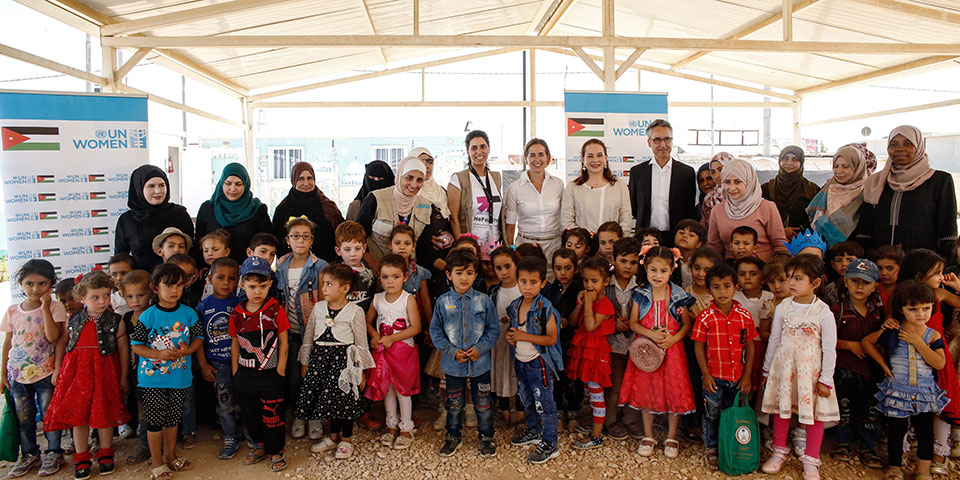
María Fernanda Espinosa Garcés, President of the UN General Assembly, received a warm welcome from Syrian women and girls enrolled in the ‘Oasis Center for the resilience and empowerment of women and girls’ operated by UN Women in the Za’atari refugee camp.
Syrian refugee women led the tour inside the Oasis Center, explaining services and activities available and designed to provide them with relevant job skills, meeting their protection concerns and promoting empowerment through leadership and civic engagement, while also engaging men and boys in dialogue and mobilization for social equality.
"In the camp, the spirit of women supporting each other lives strong," noted Ms. Espinosa.
Throughout the tour, Ms. Espinosa also learned about the support services provided to facilitate women’s access to work. For instance, the onsite childcare space accommodates 100 children every day, allowing women to access work opportunities and training inside and outside the Oasis.
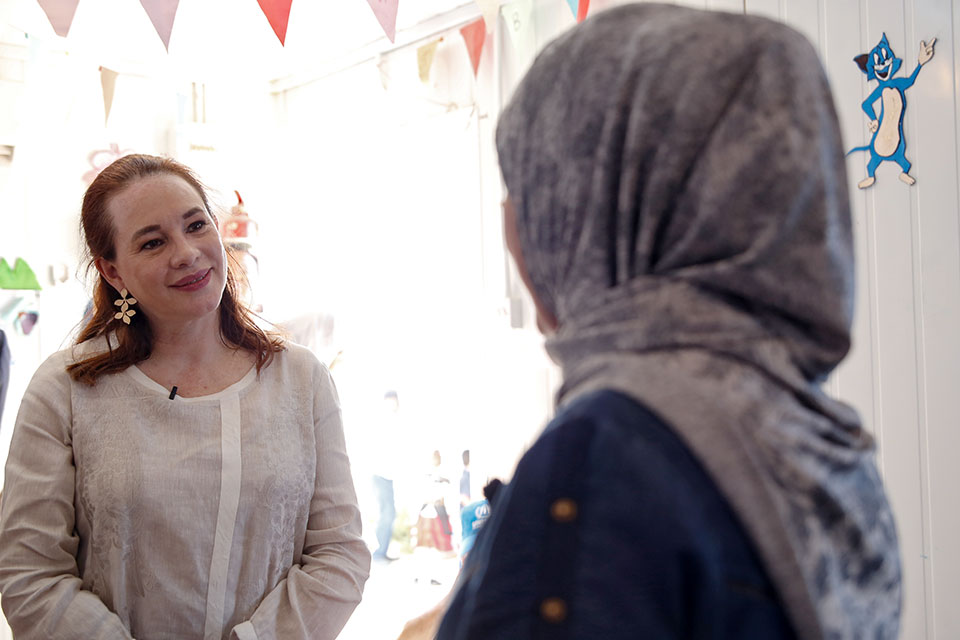
"We are grateful for the opportunity to help other women through the childcare services we provide. Women can leave their children here knowing they are in safe hands and that they also have the opportunity to learn," said Amal Al Zoubi, a senior childcare provider enrolled in the Oasis.
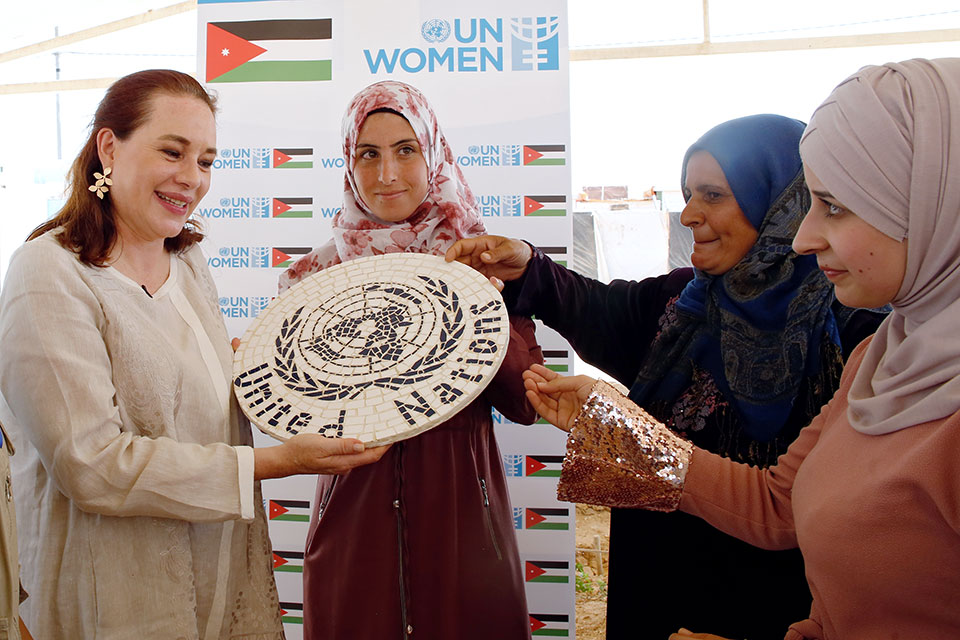
At the end of the visit, Ms. Espinosa received a mosaic plaque with the UN logo, made by Syrian refugee women as part of the handicraft workshop available inside the Oasis.
On the final day of her mission to Jordan, Ms. Espinosa met with 10 women leaders working on gender equality and women’s empowerment, including members of the Parliament and civil society organizations. Organized by UN Women, the discussion focused on joint efforts by women’s advocates to advance the women’s agenda in Jordan, highlighting the holistic contribution to the country’s priorities on building resilience, stability, and sustainable development.
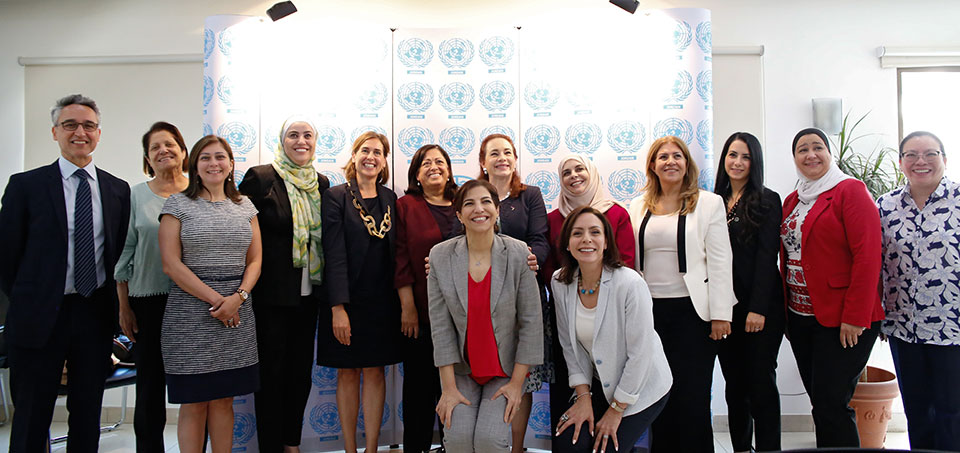
“Civil society organizations and women play a critical role in the shaping of an agenda that is forward-looking, an agenda for the future,” affirmed Ms. Espinosa.
During the discussion, participants referred to challenges and opportunities faced by women in terms of political participation and access to leadership positions. Civil society representatives also emphasized the importance of the availability of reliable gender data and statistics to inform planning and policy design.
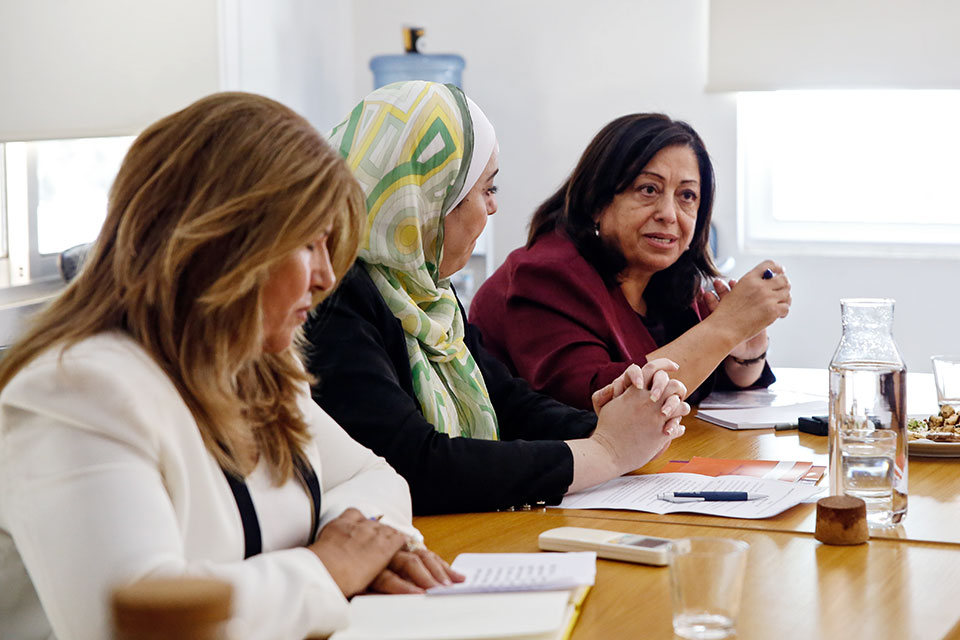
"To accelerate efforts for women we must all work together," said Asma Khada, Executive Director of Solidarity is Global Institute. "Through their work at the community level and joint advocacy efforts, civil society organizations, grassroot movements, community-based organizations and women leaders are making concreate steps towards women's empowerment and gender equality."
At the end of the meeting, Ms. Espinosa commended the contribution of Jordanian women leaders in promoting women’s representation, education and economic empowerment, including in preparation of the upcoming commemoration of the 25th anniversary since the adoption of the Beijing Declaration and its Platform for Action in 2020.
“There is no way we are going to deliver on the 2030 Agenda without 50 per cent of the world population [women],” she said.